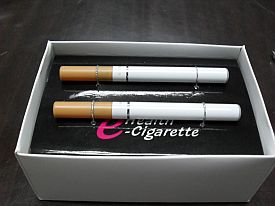EU – Baltic States, Health, Legislation, Lithuania, Markets and Companies
International Internet Magazine. Baltic States news & analytics
Thursday, 25.04.2024, 17:35
Lithuanian Presidency successfully concludes negotiations on Tobacco directive
 Print version
Print version |
|---|
The final agreement approved today includes regulation of electronic cigarettes, the website eu2013.lt reports.
The EU initiated the review of this Directive having considered the pressing need to reduce smoking among youth, decrease the number of smoking-related diseases, tackle the illegal trade, and regulate marketing and advertising of tobacco products to discourage the public from smoking.
"Agreement on Tobacco Directive is a big step towards a healthier and more prosperous society. It is just a first, but crucial step in protecting the public health and in harmonizing the market of tobacco products at the Union level. From the pragmatic point of view it is significant to all stakeholders of the EU internal market, as it establishes clearer rules for manufacturers, retailers and consumers," said the Lithuanian Minister of Health Vytenis Povilas Andriukaitis.
He added that an even more rigorous regulation of the tobacco market will need to be continued in the future, based on the new research and lessons learned, so it is just a starting point in implementation of the Framework Convention on Tobacco Control (FCTC) of the World Health Organization.
The purpose of this Directive is to approximate the laws, regulations and administrative provisions of the Member States concerning the ingredients and emissions of tobacco products and related reporting obligations including the maximum yields for tar, nicotine and carbon monoxide for cigarettes; certain aspects of the labelling and packaging of tobacco products including the health warnings to appear on unit packets of tobacco products and any outside packaging as well as traceability and security features to ensure compliance with this Directive; the prohibition to place on the market tobacco for oral use; and the notification obligation for novel tobacco products.
It took five informal trilogues for the co-legislators to come to a common understanding on all outstanding issues and to bridge the positions which finally led to an agreement today on the Tobacco Directive.
Some core elements of the agreement include: number of additives to be put on the 'priority list' (15) and the deadline for manufacturers and importers to submit reports on additives that are on the 'priority list' (18 month); prohibition of placing on the market of tobacco products with a characterizing flavours; transitory period of 4 years for mentholated tobacco products , which will be banned of summer 2020; the combined health warnings shall cover 65 percent of the external area of both the front and back surface of the unit packet and any outside packaging; tobacco for oral use (Snus) remains banned in the EU, except for Sweden, where it can be marketed in accordance with Article 151 of the Act of Accession of Austria, Finland and Sweden; member States may ban cross-border distance sales of tobacco products; e-cigarettes included into the scope of the Directive; Member States which regulate the e-cigarettes as pharma products will be able continue; maximum permitted nicotine concentration level of 20 mg/ml, use of refillable cartridges for e-cigarettes allowed and the maximum size of the single use cartridges of 2 ml; concerning e-cigarettes strict safeguards were introduced allowing, inter alia, the Commission to ban via delegated acts given type of electronic cigarette or refill container, or a type of electronic cigarettes or refill containers, which has been banned on justified ground by at least three Member States.
The Commission submitted the Proposal for a Directive of the European Parliament and of the Council on the approximation of the laws, regulations and administrative provisions of the Member States concerning the manufacture, presentation and sale of tobacco and related products on 20 December 2012. A General approach of the Council (EPSCO) was reached on 21 June 2013. ENVI Committee voted on 10 July 2013. EP Plenary voted on 8 October 2013.








 «The Baltic Course» Is Sold and Stays in Business!
«The Baltic Course» Is Sold and Stays in Business!

